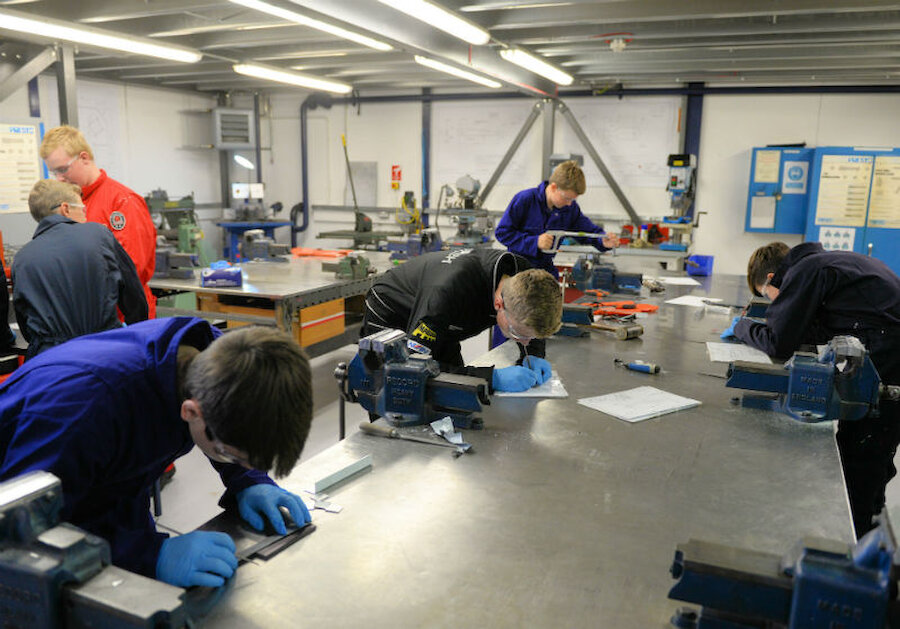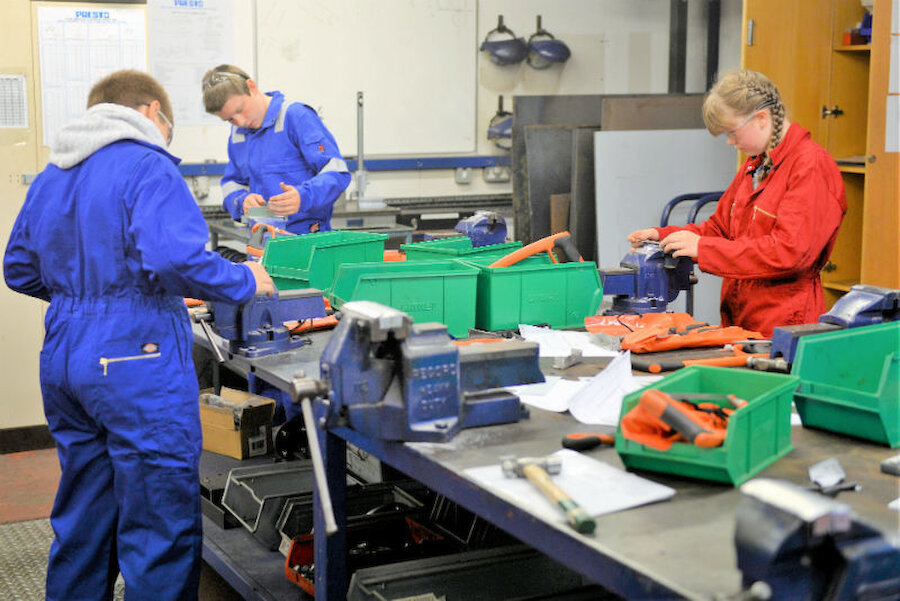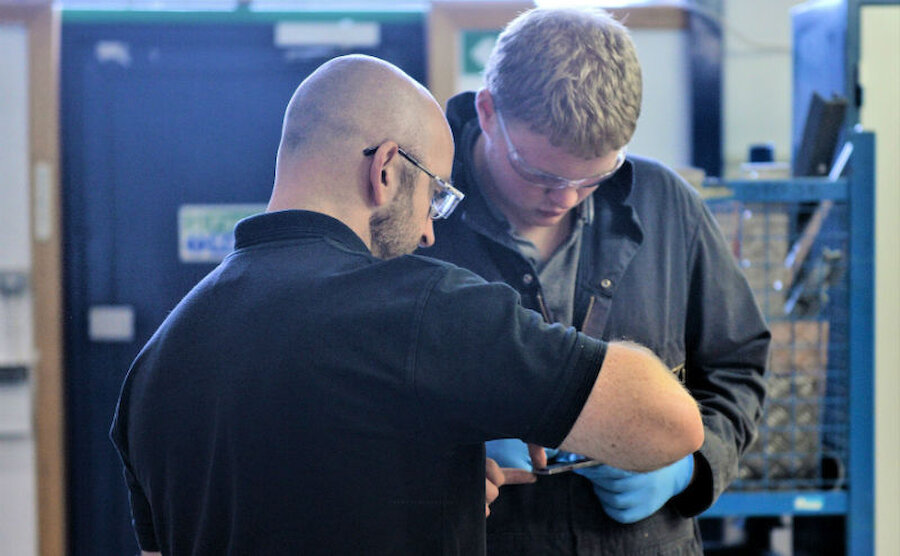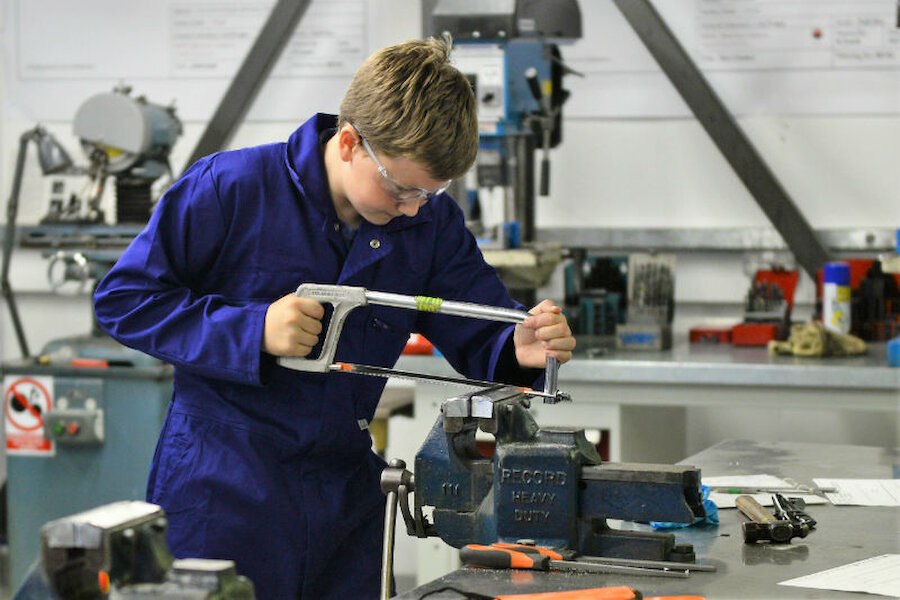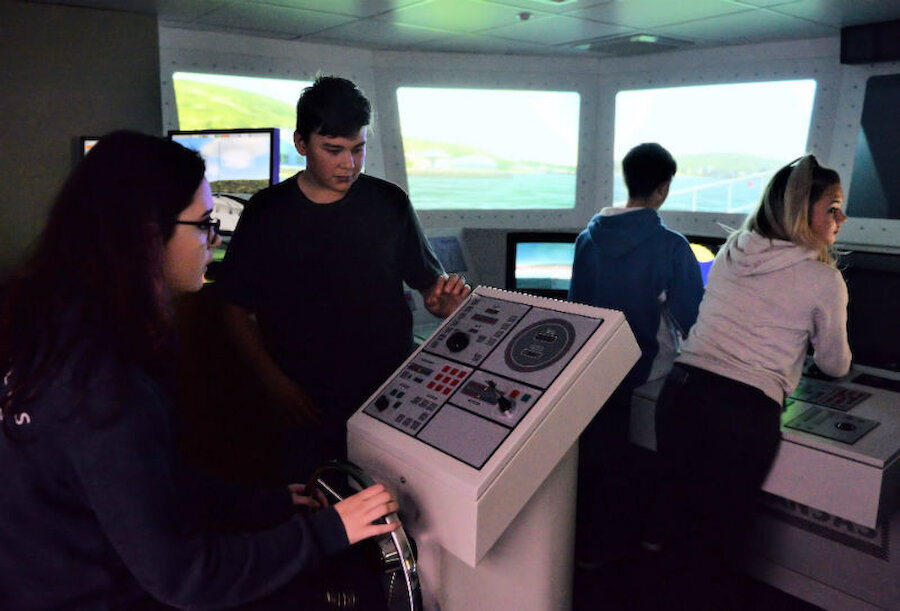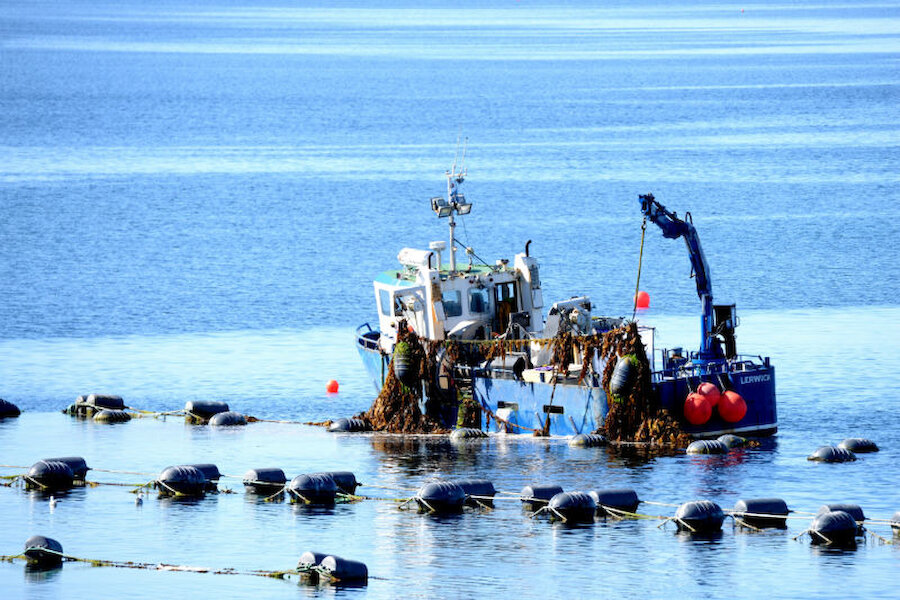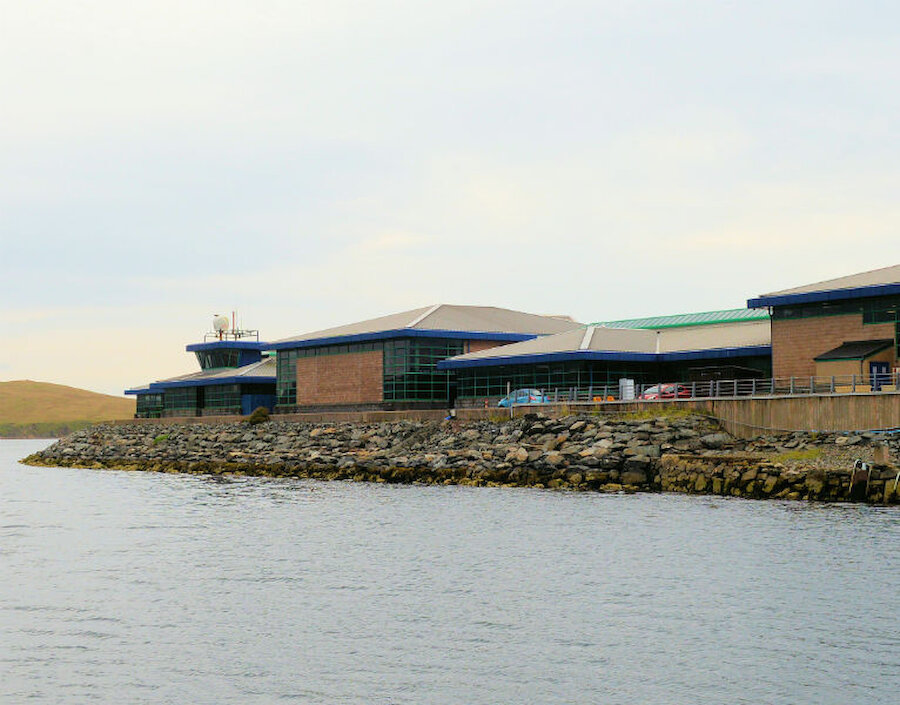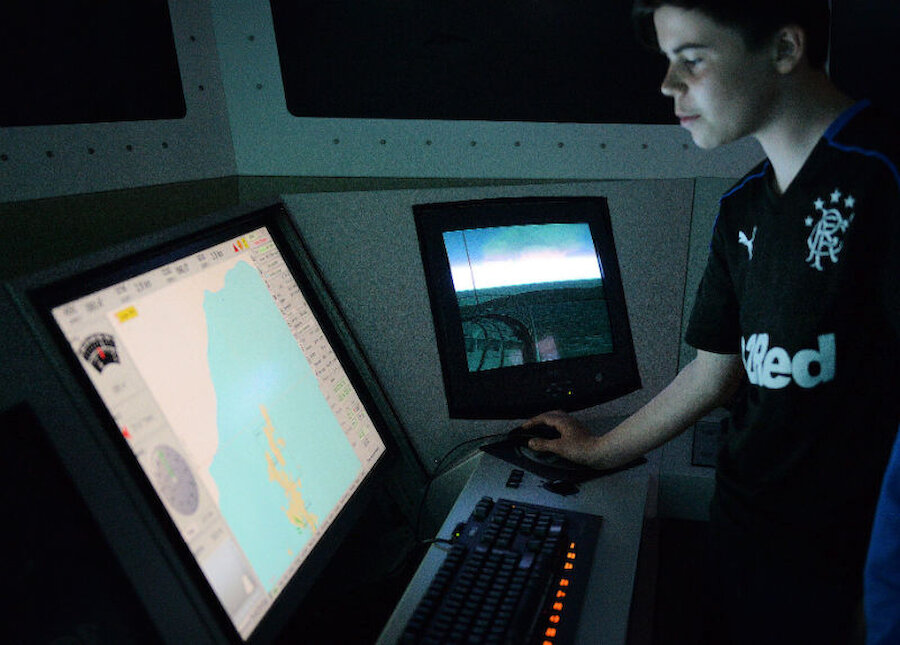It’s often said that, in Britain, we don’t put enough emphasis on vocational training. If that’s true, Shetland’s ‘Skills for Work’ programme is resetting the balance. The scheme operates at both the Shetland colleges that form part of the University of the Highlands and Islands. At one of them, the NAFC Marine Centre in the village of Scalloway, another 36 keen young people from schools all over Shetland have recently signed up for courses that will give them useful skills and qualifications.
Over the coming two years, the students, all currently in their third year of secondary school, will attend NAFC one day each fortnight while continuing their normal school classes the rest of the time. The Skills for Work programme (also known as Vocational Pathways) offers young people the opportunity to undertake college-based vocational training while still at school.
As well as gaining a variety of practical skills and experiences relevant to particular careers, they’ll experience the world of work. Students who complete the programme also receive an SQA qualification.
As lecturer, Howard Thomson, explained, the Engineering Skills course “has always been over-subscribed” and all 20 places were quickly filled, as “all the Shetland schools buy into this – that’s been the case all along.” They’ll be taught good practice in areas such as metalworking and fabrication, electrical wiring and electronics, and basic mechanical plant maintenance.
all the Shetland schools buy into this
Howard added that “most of the kids do seem to enjoy what we do here, they get a good feel for the NAFC and quite often come back as apprentices or to gain other qualifications. A lot of them stick with engineering. They’ll either move on with us to become a full-time student, or they may become a merchant navy cadet, or go into engineering at a higher level.”
His colleague, Steven Moar, explained that this Secondary 3 group will learn about fabrication and do a mechanical unit. “After the summer holidays next year, they’ll do an electrical unit, and after Christmas they’ll come back for a unit that brings together everything that they’ve learned. They’ll get an Engineering Level 4 SQA – it’s a really good basis.
"This year, we’ve five guys that came through from Skills for Work who’ve come back as apprentices, so it’s a really good stepping stone for them to progress in engineering. It’s an excellent peerie course and they seem to really enjoy it.
"We treat them a bit more like adults and get a bit of rapport going with them. It’s a grown-up atmosphere, so it’s first-name terms. I’m just Steven - it’s not Mr Moar or anything like that.”
it’s a really good stepping stone for them
The Maritime Skills course was also over-subscribed this year, with 11 taking up places. It’s been running for more than 10 years. The lecturer, Adam Thomson, explained:
“It’s a basic maritime course, so they’ll learn all the basic chart work; today, they’re learning about weather, and then we’ll do a bit of seamanship, so we’ll do knotwork and working with ropes, and then we’ll take them out on small boats, learn a bit about how to maintain small boats and the engineering behind that – how an engine works and the differences between diesel and petrol, two-stroke and four-stroke.
"We also do health and safety, so they do risk assessments, sea survival and first aid, to keep them safe.
Then we teach them employability skills – what jobs are available in the maritime industry – because, hopefully, about half of the class will move on into the fishing industry or come here to be merchant navy cadets. A lot of what they learn is the same as what someone just going to sea will learn.”
Again, the students were obviously enjoying the course and were already thinking about careers. Laura wants to join the Royal Navy when she leaves school. Leah told me: “I’ve always been interested in boats – my grandad makes boats – and I want to do marine biology when I’m older, and knowing how to work a small boat would really help with that.”
Other students mentioned the merchant navy and fishing as careers, for example Calum told me: “I’ve always been interested in fishing and boats and my family has a history with the sea, and I’d like to join the merchant navy once I leave school.”
I want to do marine biology when I’m older
Five students enrolled on the Aquaculture course, which is being run for the first time in a number of years. This course will cover all aspects of aquaculture in Shetland, including mussels and salmon, from hatcheries to farm sites and processing factories. Students will also receive training in small boat handling and sea survival skills.
The aquaculture students had a busy first day, visiting a lumpfish hatchery, looking in some creels, getting lectures on the lifecycle of the Atlantic salmon and learning how to tie a bowline knot. When I called at the college on their second day, they were once again out on a site visit, this time visiting one of the local supermarkets to learn about the retail supply chain.
Other Skills for Work courses are available at Shetland College in Lerwick, including construction crafts, contemporary art skills, early education and child care, hairdressing, hospitality, sound engineering, video production and sports leadership. All the Skills for Work courses include site visits to local companies or other relevant sites to broaden the students’ experiences. There’s also a strong emphasis on general transferable skills that are relevant to any field of work. This video offers an excellent introduction.
These courses are clearly really worthwhile and it’s impressive to see such effective joint working between Shetland’s schools, the NAFC Marine Centre and other local agencies such as Shetland Arts, which runs Mareel.

